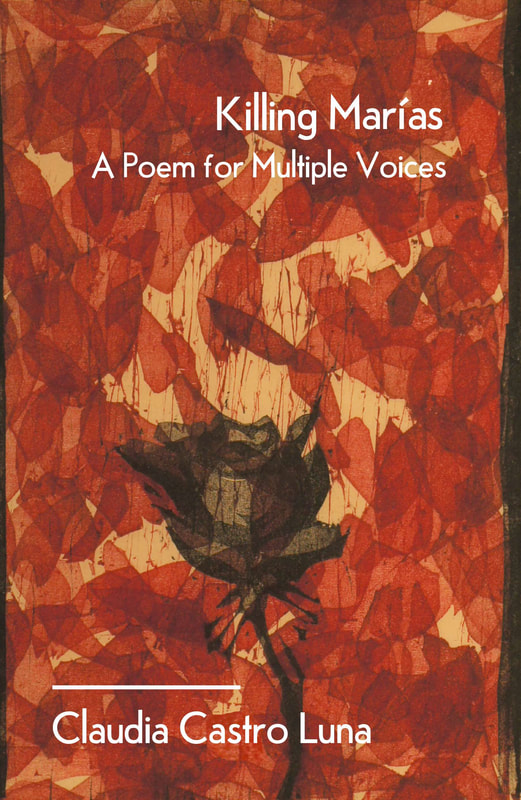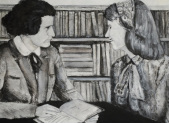Praise for Killing Marías:
Each poem in Killing Marías is addressed to someone named María who has been killed in Juárez. Lyric in tradition, they are more love poems than elegies. The poems are full of love, of care, of transnational empathy. This is a book that is unusually moving and beautifully written.
— Juliana Sphar, author of nine books of poetry, including This Connection of Everyone with Lungs, Well Then There Now, and That Winter the Wolf Came
In this epic poetry collection Killing Marías, Claudia Castro Luna, both poetically and physically, settles spaces that were unclaimed by Latinas. Her inscription of the disappeared women of Juárez is a live cartographic image of struggle and spiritual survival. Castro Luna does not allow for these dead women to lack agency; they nourish us and the earth, and they speak with their bodies, literally, positioning themselves as recovered entities with agency, in the poet’s skilled narrativizing hands.
— Gabriella Gutiérrez y Muhs, Ph.D., author of A Most Improbable Life and The Runaway Poems: A Manual of Love
In Killing Marías, each poem is a rosary bead named after a woman’s life in Ciudad Juárez. Each bead reveals a crack of light through which we can peak into the hurt so many women experience from birth to death. Castro Luna’s piercing voice states “exploitation has no limits,” and that “man’s hypocrisy even less.” She dares us to stop being mediocre humans, especially men, and let the “feminine thrive.”
— Javier Zamora, author of Unaccompanied and Nueve Años Inmigrantes / Nine Immigrant Years
Sample Poem:
María Santos Sweetest Apple
They say we live
on either side of a border
I say that’s fodder
for a sexist imagination
coyote’s tooth does not alone bite
and falcon’s feather takes not alone to the sky
silo living is not for living things
like the braid on my abuela’s back
and beads on a Rosary strand
interlinked we are rain, dust, stars


